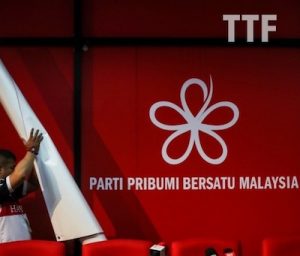
Aziz Hassan
Recollections & Reflections – A commentary
IT was the dominant party in the coalition that ruled Malaysia for an uninterrupted stretch lasting 61 years, only to be undone by a shock electoral defeat last May 9, and for a party that was always at the top in politics, you would have thought that Umno would show the maturity, wisdom and composure usually associated with a party with that much experience.
But recent developments point in the opposite direction, with Umno seemingly rattled by the slightest hint of an uncertainty, with rumours of an imminent crossover by its MPs the most popular to make the rounds, without realising that this could be the work of propagandists from Pakatan Harapan whose only intention is to create disarray, disunity and distrust among Umno leaders and members.
Why the senior Umno leadership group should also accept an invite by their former president to a meeting only they can tell but one could not find a compelling reason why they should meet up, especially when Tun Dr. Mahathir Mohamad’s disgust with the party he ditched for a second time a few years ago is public knowledge.
According to Umno sources, at the meeting Mahathir did offer an olive branch, although this has been denied all over by Pakatan politicians.
The problem is, in many ways Umno is in a weak position, with a former president and its sitting president facing multiple charges in court. While nothing has been proven against them, the knives have been out since some time back and the court of public opinion has definitely given its verdict.
What Umno needs is to pool its now limited resources to focus on its transformation or rebranding, especially on how to ensure that the 47 or 48 remaining MPs from the original total of 54 do not follow the other quitters.
Any reasonable person knows that transformation can take time but the least Umno can do is to inform members of its plan, its mission statement to lift the unease and erase the doubts over its future.
A lot too has been said about where Umno went wrong, including by members, but for some strange reasons most of it was heard loud and clear only after May 9.
This where it’s difficult to agree with the reasons given by the quitters, including former supreme council member Datuk Seri Mustapa Mohamed, who recently joined Mahathir’s Parti Pribumi Bersatu Malaysia. Apart from supposedly realising Umno’s follies only after May 9, those MPs who decided to abandon the party spoke as if Umno was expected to be on the way to transformation barely days after the elections, which was asking for the sky.
If the Umno leaders are wise enough, they may realise that it doesn’t make much sense for them to kowtow to Pribumi Bersatu, which has only 14 MPs from the 52 who contested on May 9, which meant an only 26.92 per cent success. Even fellow coalition member Amanah, with 11 MPs from 34 who contested, had better success.
That Pakatan itself is not as firm in its footing compared to Barisan Nasional those days was alluded to recently by Mahathir. https://technu.nst.com.my/news/nation/2018/10/423742/ph-could-collapse-if-one-party-withdraws-dr-mahathir.
And that Pribumi Bersatu, with only 14 parliamentary seats from Pakatan’s total of 114, doesn’t have a strong voice because it lacks the numbers is there for all to see.
Thus all Umno needs to do is to hang on for a few more years. In the meantime it just needs to ask the question “Where to for Pribumi Bersatu after Mahathir?” At the moment how many people can confidently tell you if Pribumi Bersatu will remain in the shape it is in today after Mahathir. Does Tan Sri Muhyiddin Yassin, his health notwithstanding, have the same charisma and influence? What is Datuk Seri Mukhriz in politics without Mahathir?
If not for Mahathir having the prerogative as prime minister, would Pribumi Bersatu have six ministers and four deputies in the government? Would Mukhriz be in a strong position to claim the Kedah mentri besar’s chair when his party has only five of the 36 seats? Surely Umno has the answers to these questions and that should help it chart the party’s route without having to be burdened by fear.
How did Mahathir know?
During his recent visit to Bangkok Mahathir said that some more people would be charged for corruption. Now if the Malaysian Anti-Corruption Commission and other investigating agencies are truly independent, no outsider should be in a knowledgeable position to declare the way Mahathir did.
By making this remark Mahathir helps to reaffirm the perception among many Malaysians that these agencies defer to the prime minister.
It is for this reason that any institutional reform, especially elements that transfer some of the powers of the prime minister to an independent committee, should not be unduly delayed.
Source: The Mole



